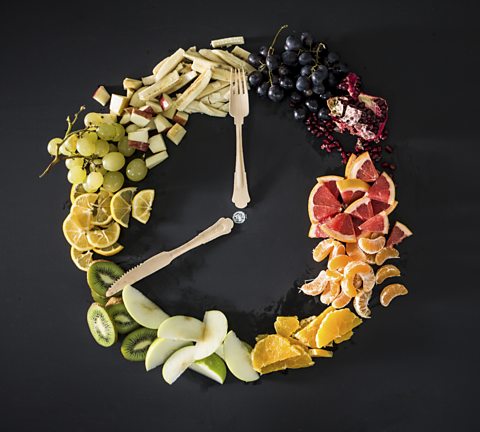1-Trouble sleeping?
One third of us suffer from insomnia at some stage in our lives, and most of us have mild trouble sleeping from time to time. Whether you're struggling to fall asleep, stay asleep or both, many factors play a role. These include stress, distracting environments and the food you eat.
Have you ever wondered why some foods and drinks make you sleepy while others give you an energy boost? Does cheese give you nightmares? Can warm milk help you sleep? We separate the facts from the fiction and show how tweaking your diet can help you slow down in the evening and sleep soundly throughout the night.
2-Carbs v protein
Should we consume carbs or protein for a good night's sleep? The answer seems to be both.
Tuck yourself in with tryptophan
Tryptophan is an amino acid that's believed to induce sleep. This is because it is a precursor to the sleep-inducing chemicals serotonin and melatonin, in the brain. Tryptophan is present in small amounts in most protein foods and in higher amounts in yoghurt, milk, oats, bananas, dates, poultry, eggs and peanuts.
For tryptophan to be effective, it has to cross the blood-brain barrier (the brain's security system). To do this it has to compete with other amino acids. Research suggests that combining tryptophan-rich foods with carbohydrates gives tryptophan an advantage. Carbohydrates stimulate the release of insulin, which helps to clear other amino acids from the bloodstream and helps tryptophan reach the brain.
More research is needed in this area, and the amount of tryptophan in foods is still relatively small and may only have a modest effect.

3-The truth about 'sleepy' drinks
Click or tap on the image below to find out if certain drinks can send you to sleep.
4-When should you eat?

Reset your body clock
Recent research suggests that the time of day you eat may affect your sleep. We all have an internal body clock that tracks the time of day and, it seems, a ‘feeding clock’ that tracks meal times.
The research shows that when a mouse eats at irregular times its body clock gets out of sync. When food is limited, the feeding clock overrides the body clock, keeping the mouse awake until it locates food. Studies with mice are not necessarily indicative of humans, but it is interesting to note that sleep patterns may be affected by eating patterns.











0 comments:
Post a Comment